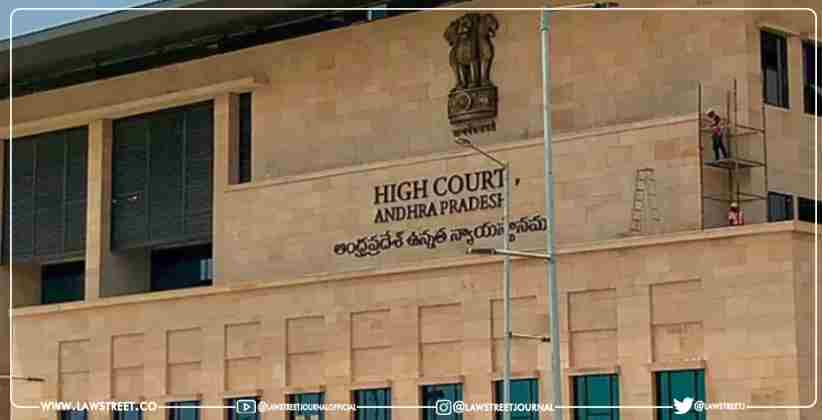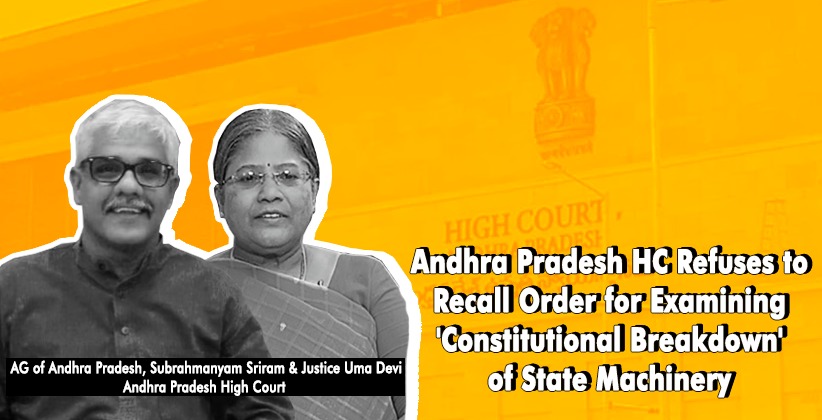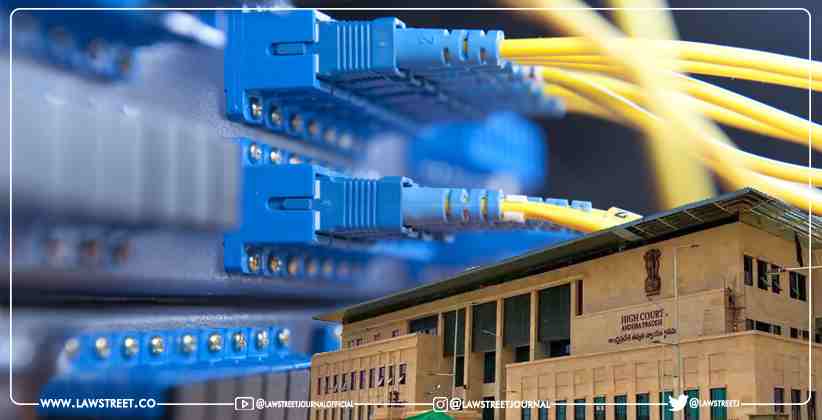When there are no specific allegations made against the husband's family in a dowry harassment case, the Honble Andhra Pradesh High Court has held that it prima facie does not constitute a crime under Section 498A of the Indian Penal Code, 1860.
The said allegations prima facie do not constitute any offence punishable under Section 498A IPC. Except the said vague allegation, there are no specific allegations made against these petitioners regarding the harassment said to have been caused by them to the deceased by making any illegal demands for additional dowry etc.
Brief Facts of the case
The petitioners were charged under sections 498A[1] (punishment for husband or relative of husband subjecting women to cruelty), 306 (abetment to suicide)[2], and 34 (Acts done by several persons in furtherance of common intention) [3]of the Indian Penal Code 1860.
This Criminal Petition under Section 438 of the Code of Criminal Procedure, 1973[4], is filed to enlarge the petitioners on bail in the event of their arrest.
A court order that allows a person to be released on bail before being arrested. In this case The person is not arrested before the bail is granted , which is known as anticipatory bail. A person can apply for this type of bail under Section 438 of the Criminal Procedure Code (CrPC), 1973. The Sessions Court and the High Court are the only two courts that can issue it.
As per the version of prosecution first accused was the husband of the deceased and the second and third accused were the parents of the husband . It was contended that husband along with his parents are subjected the deceased to cruelty with illegal demands . Unable to bear the said harassment, she has committed suicide by hanging
The Counsel for petitioners/accused submitted that only vague allegations were made against the parents and they were falsely implicated in the crime. Therefore, they prayed for grant of anticipatory bail .
According to Additional Public Prosecutor there were certain allegations that were made against these petitioners/ accused stating that they used to harass the deceased as they did not like her marrying their son and as such unable to bear the said harassment that she has committed suicide. Therefore, they prayed for dismissal of the Criminal Petition.
The Honble Court Observed that
As can be seen from the record, there are no specific allegations made against these petitioners regarding the alleged harassment said to have been caused by them to the deceased by making any demand for any additional dowry. The only allegation that was made is that the petitioners did not like the deceased marrying A-1 ( Husband ) and as such they used to make comments against her in this regard and used to harass her. The said allegations prima facie do not constitute any offence punishable under Section 498A IPC. Except the said vague allegation, there are no specific allegations made against these petitioners regarding the harassment said to have been caused by them to the deceased by making any illegal demands for additional dowry etc. Therefore, in the said facts and circumstances of the case, this Court is of the considered view that the petitioners are entitled for pre-arrest bail.
JUDGEMENT
Resultantly, this Criminal Petition is allowed. In the event of arrest of the petitioners in the above crime, they shall be forthwith released on bail on execution of self-bond for Rs.25,000/-(Rupees fifty thousand only) each with two sureties ".
Case Title: Gudimetla Srinivasulu Versus The State of Andhra Pradesh
Case Number CR.P No.1487 OF 2022
[1] Section 498A in The Indian Penal Code
[498A. Husband or relative of husband of a woman subjecting her to cruelty.Whoever, being the husband or the relative of the husband of a woman, subjects such woman to cruelty shall be punished with imprisonment for a term which may extend to three years and shall also be liable to fine. Explanation.For the purpose of this section, cruelty means
(a) any wilful conduct which is of such a nature as is likely to drive the woman to commit suicide or to cause grave injury or danger to life, limb or health (whether mental or physical) of the woman; or
(b) harassment of the woman where such harassment is with a view to coercing her or any person related to her to meet any unlawful demand for any property or valuable security or is on account of failure by her or any person related to her to meet such demand.]
[2] Section 306 in The Indian Penal Code
306. Abetment of suicide.If any person commits suicide, whoever abets the commission of such suicide, shall be punished with imprisonment of either description for a term which may extend to ten years, and shall also be liable to fine.
[3] Section 34 in The Indian Penal Code
37 [34. Acts done by several persons in furtherance of common intention.When a criminal act is done by several persons in furtherance of the common intention of all, each of such persons is liable for that act in the same manner as if it were done by him alone.]
[4] Section 438 in The Code Of Criminal Procedure, 1973
438. Direction for grant of bail to person apprehending arrest.
(1) When any person has reason to believe that he may be arrested on an accusation of having committed a non- bailable offence, he may apply to the High Court or the Court of Session for a direction under this section; and that Court may, if it thinks fit, direct that in the event of such arrest, he shall be released on bail.
(2) When the High Court or the Court of Session makes a direction under sub- section (1), it may include such conditions in such directions in the light of the facts of the particular case, as it may think fit, including-
(i) a condition that the person shall make himself available for interrogation by a police officer as and when required;
(ii) a condition that the person shall not, directly or indirectly, make any inducement, threat or promise to any person acquainted with the facts of the case so as to dissuade him from disclosing such facts to the Court or to any police officer;
(iii) a condition that the person shall not leave India without the previous permission of the Court;
(iv) such other condition as may be imposed under sub- section (3) of section 437, as if the bail were granted under that section.
(3) If such person is thereafter arrested without warrant by an officer in charge of a police station on such accusation, and is prepared either at the time of arrest or at any time while in the custody of such officer to give bail, be shall be released on bail; and if a Magistrate taking cognizance of such offence decides that a warrant should issue in the first instance against that person, he shall issue a bailable warrant in conformity with the direction of the Court under sub- section (1).












